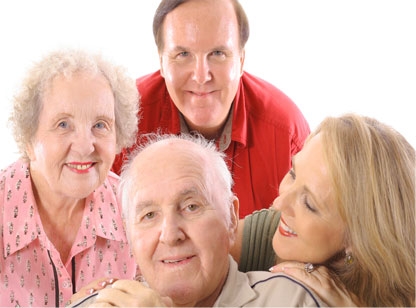
ATAVISTIC CHEMOTHERAPY & IMMUNOTHERAPY



The Most Common Side Effects
Some side effects may be associated with the use of Atavistic Chemotherapy and Immunotherapy. The most common side effects are:
Fatigue
Fatigue is one of the most common side effects of Atavistic Chemotherapy. The degree of tiredness seems to occur in proportion to the severity of the patient's cancer. Patients with small amounts of cancer rarely experience undue fatigue. Conversely, patients with large amounts of cancer usually do experience fatigue. This symptom tends to disappear during the first month of treatment. We believe that worsening fatigue occurs as a result of the increased work your body must do to remove the waste products generated from dying and disintegrating cancer cells.
Nausea
Nausea is most common during the first few weeks of treatment, and then it tends to go away. Nausea with Atavistic Chemotherapy is very different from that seen in conventional chemotherapy. In conventional chemotherapy, damage to the cell lining of the stomach and intestines causes nausea. The nausea that may occur during Atavistic Chemotherapy generally only happens one to two hours after the medications are administered, and the nausea is usually mild. Nausea and vomiting can be treated by changing the way you eat and by using drugs especially designed to help relieve these symptoms. These medications are called antiemetic drugs. Sometimes patients need to try more than one antiemetic drug before finding one that is effective. The following measures are also helpful in reducing nausea:
Skin problems
Some patients experience dry skin or rashes during treatment. Dry lips are a common occurrence. Using skin creams, lotions, and bath oils can help you regain moist skin when drying, itching, or cracking is present. The regular use of lip balm during the day may also prevent cracked lips.
Loss of hair
Female patients may have hair loss during Atavistic Chemotherapy treatment, usually after two months of treatment. Hair loss may involve the head, eyelashes, eyebrows, underarms, or pubic area. Unfortunately, the occurrence of hair loss is unpredictable. Hair usually grows back during treatment. Dr. Arguello is constantly developing new combinations of anticancer drugs to prevent this distressing side effect. Meanwhile, a short haircut can make hair look thicker and fuller. Protecting exposed skin from the sun with sunscreen, clothing and hats also helps minimize hair loss.
Diarrhea
Diarrhea can develop during Atavistic Chemotherapy. It can be caused by the use of antibiotics or by the vegetable oil that is used to enhance medication absorption. Many of the drugs used in Atavistic Chemotherapy are better absorbed in the presence of fats. Therefore, patients are instructed to take their medicines with some type of vegetable oil, preferably olive oil, along with their regular meals. However, some people's digestive systems are more sensitive than others to fats. Diarrhea can be the result.
Probiotics and over-the-counter Pepto-Bismol, Kaopectate or Imodium are useful in controlling diarrhea. On the other hand, milk and milk products can make diarrhea worse and should be avoided. A liquid diet without carbonation is sometimes helpful. If you experience more than seven or eight loose stools in 24 hours, contact your doctor.
IMPORTANT: Bear in mind that you have a serious disease which can, by itself, create life-threatening situations. Thus, symptoms you experience may not be directly related to side effects of treatment, per se. If you experience any of the following, go immediately to your local emergency room:
Do not wait for Dr. Arguello’s phone call or email. It is more appropriate to contact your local doctor or to go directly to an emergency room in these situations.
View Comment( 4 )

 Thu, Apr 17,2014
Thu, Apr 17,2014  01:59 AM
01:59 AM

 Tue, May 06,2014
Tue, May 06,2014  05:00 AM
05:00 AM

 Fri, Sep 26,2014
Fri, Sep 26,2014  01:44 PM
01:44 PM

 Wed, Aug 05,2015
Wed, Aug 05,2015  04:49 PM
04:49 PM